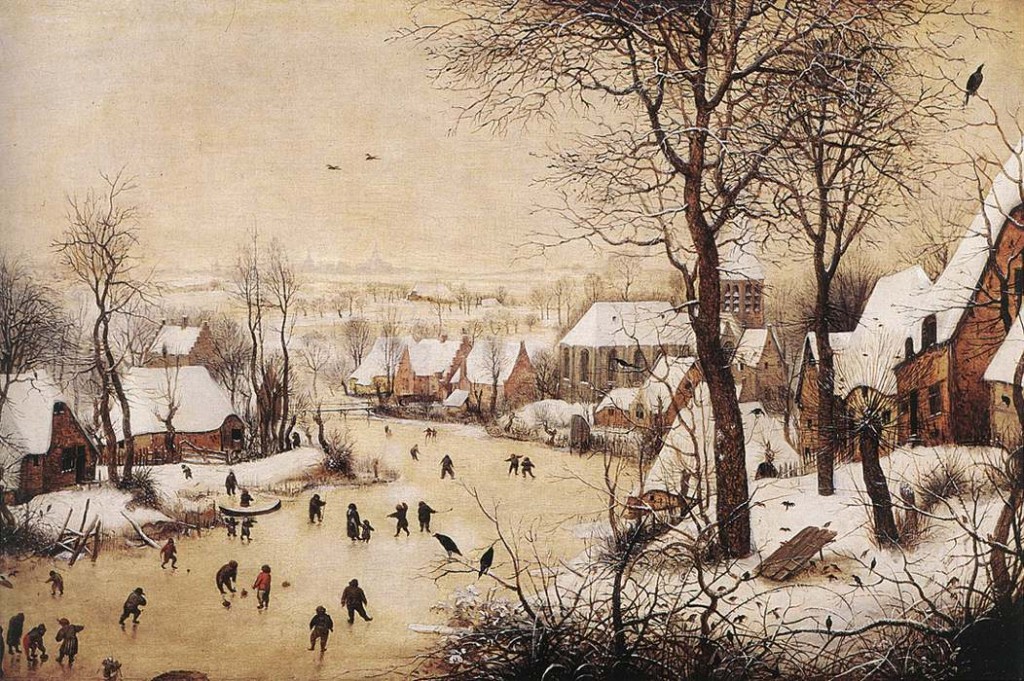A Bruegel Winter Scene
January 10, 2012
FEW PAINTERS have conveyed the muted beauty of a winter day as powerfully as Pieter Bruegel. In his Winter Landscape with Skaters and Bird Trap, painted in 1565, at a time when landscape paintings were rare, the frolicsome skaters are dwarfed by the whitened sky, trees and snowy bank, and yet it is as if nature is made for them. For Bruegel, winter is humane. It contains a muted holiness and joy.
Some of the Flemish painter’s scenes, such as Hunters in the Snow, are so often reproduced they are now difficult to see fresh. In 1949, Kenneth Clark wrote of Bruegel’s paintings:
Few works of art are less in need of commentary. They are like Handel’s Messiah and the Pilgrim’s Progress, amongst those very rare works of the first order which have a widespread, immediate appeal. His Hunters in the Snow has come to hold almost the same place in the popular imagination as was held by the madonnas of Guido Reni and Sassoferrato a hundred and fifty years ago, and in wintry weather people may be heard muttering the name of Breughel [sic] much as, in the eighteenth century, travelers invoked the name of Salvatore Rosa, and with a good deal more justice.
Clark, in Landscape into Art, also wrote:
The confidence with which Breughel looks back and forward in time and seizes any weapon which comes to hand, is almost Shakespearean, and is used for a similar end: the expression of an all-embracing sympathy with humanity. For although his human beings, their faces simplified to mere discs, seem sometimes to lose their individualities, and become part of the mechanism of the universe, yet in the end it is the struggles and miseries and scarce animal pleasures of their lives which really absorb him, and dictate the character of his landscapes. Breughel’s work remains unique. (pp. 57-59, Landscape into Art, Harper and Row; 1976 edition)
— Comments —
James H. writes:
I just love that painting! Thanks for posting it. Clark’s observation, “Few works of art are less in need of commentary. They are like Handel’s Messiah and the Pilgrim’s Progress, amongst those very rare works of the first order which have a widespread, immediate appeal” could not be more spot on. Marvelous image evocative of civilization lost.

